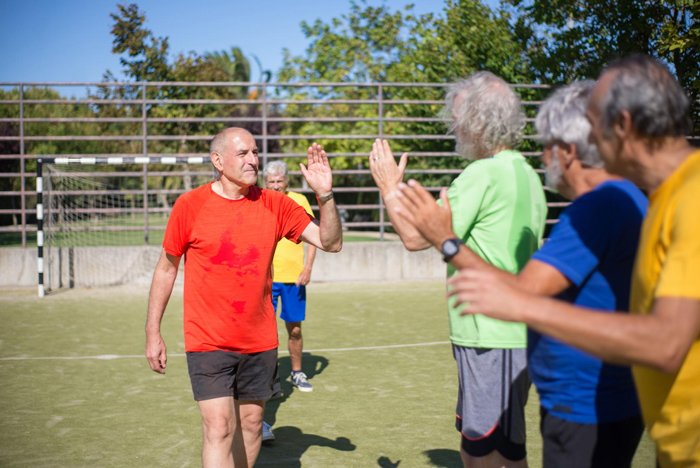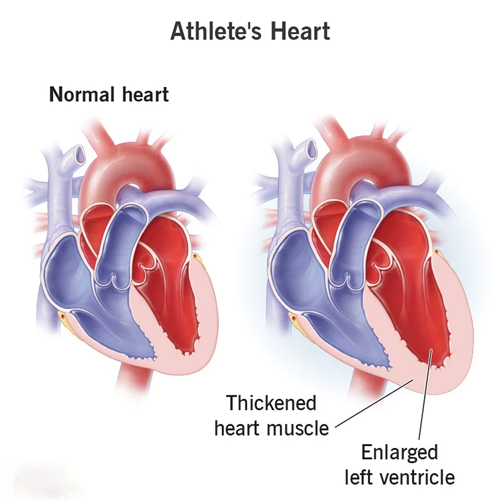The Health Benefits of Playing Soccer: More Than Just a Game

Table of Contents
ToggleSoccer, also known as football, is not just a beloved sport but a powerful tool for promoting physical fitness and overall well-being. Whether played professionally or casually, soccer offers numerous health benefits that extend beyond the field. In this comprehensive blog post, we will explore the multifaceted advantages of playing soccer, highlighting its impact on cardiovascular health, muscular strength, coordination, mental well-being, and social connections. Join us as we delve into the world of soccer and discover how this dynamic sport can contribute to a healthier and more fulfilling life.
Cardiovascular Health and Endurance

One of the key benefits of playing soccer is its positive impact on cardiovascular health. Soccer involves continuous movement, including running, jogging, sprinting, and changing directions. These activities elevate heart rate and improve aerobic capacity, strengthening the heart and lungs. Regular participation in soccer can lower the risk of cardiovascular diseases such as heart attacks, strokes, and high blood pressure.
Soccer also enhances endurance as players engage in prolonged periods of activity without breaks. The repetitive nature of the game helps build stamina, increasing the body’s ability to sustain physical effort over time. This improved endurance not only enhances performance on the field but also translates into everyday activities, allowing individuals to tackle daily tasks with ease.
Muscular Strength and Endurance

Playing soccer involves various muscle groups, leading to improved strength and endurance. The lower body muscles, including quadriceps, hamstrings, calves, and glutes, are actively engaged during running, kicking, jumping, and changing directions. These movements promote muscle development and enhance lower body strength.
In addition to the lower body, the core muscles play a vital role in soccer. Maintaining balance, stability, and control during rapid movements requires a strong core. Regular soccer training can lead to improved core strength, contributing to better posture, reduced risk of lower back pain, and enhanced overall body strength.
The repeated bursts of high-intensity activity in soccer also enhance muscular endurance. Constant movement and changes in pace demand sustained muscle engagement, resulting in improved muscle endurance over time. This endurance enables players to perform at their best throughout the duration of a match and aids in preventing fatigue-related injuries.
Coordination and Agility

Soccer requires precise coordination between the feet, eyes, and mind. Dribbling, passing, shooting, and controlling the ball involve intricate footwork and rapid decision-making. These actions enhance coordination and promote better body control, leading to improved balance and agility.
The dynamic nature of soccer, with its quick changes in direction, accelerations, and decelerations, challenges players to adapt quickly to the ever-changing game scenarios. This constant demand for quick reactions and coordination sharpens reflexes and improves overall agility.
Mental Well-being

Engaging in physical activity like soccer has significant mental health benefits. Soccer helps reduce stress and anxiety by stimulating the release of endorphins, also known as “feel-good” hormones. These natural mood-boosters enhance feelings of happiness, relaxation, and overall well-being.
Participating in team sports like soccer fosters a sense of camaraderie and social connection. The social interactions, shared goals, and teamwork involved in soccer contribute to a sense of belonging and can help combat feelings of loneliness and isolation.
Furthermore, soccer can be an excellent outlet for managing and channeling emotions. The game provides a platform to release built-up stress and frustrations, offering a cathartic experience. The focus required during gameplay helps divert attention from daily worries and promotes mindfulness, fostering mental clarity and a sense of achievement.
Social Connections

Soccer is renowned for its ability to bring people together. Whether playing on a recreational team or joining organized leagues, soccer provides an avenue for socializing and building lasting connections. Teamwork, communication, and cooperation on the field extend beyond the game, leading to the development of meaningful friendships and a strong support network.
Soccer offers opportunities for individuals from diverse backgrounds to come together, fostering inclusivity and cultural exchange. Sharing a common passion for the sport facilitates bonding, breaking down barriers, and promoting understanding among players of different ages, genders, and nationalities.
Conclusion: The Holistic Benefits of Soccer and ASI Soccer’s Role
The health benefits of playing soccer go far beyond the physical. Engaging in this dynamic sport enhances cardiovascular health, muscular strength, coordination, and agility, while also promoting mental well-being by reducing stress, improving mood, and fostering social connections. Whether played recreationally or professionally, soccer offers a holistic approach to wellness, combining physical exercise, mental stimulation, and social engagement.
ASI Soccer, a sports ball manufacturing company from Sialkot, Pakistan, has been producing top-quality soccer balls for buyers worldwide since 2006. By supplying premium soccer balls for all types of play, ASI Soccer indirectly contributes to the global mission of promoting health and fitness through the beautiful game. So, lace up your cleats, grab an ASI Soccer ball, and experience the transformative power of soccer.
- Facebook
- Twitter
- Linkedin
- Whatsapp





